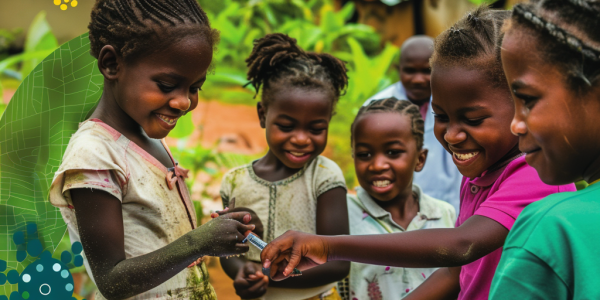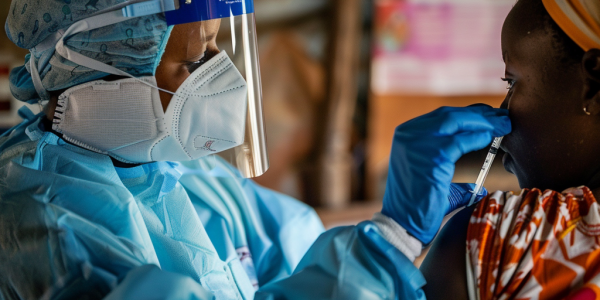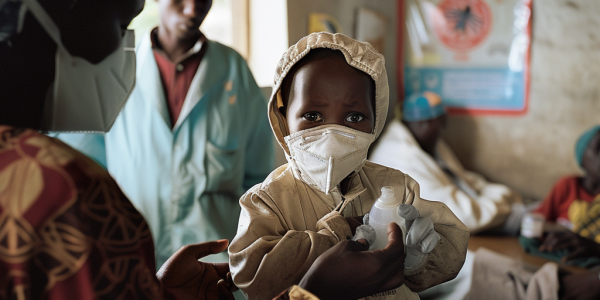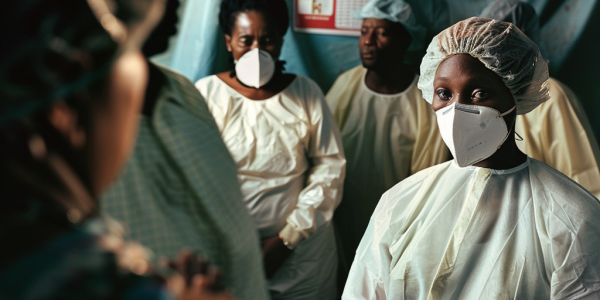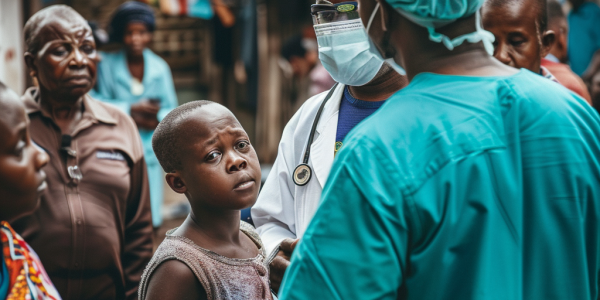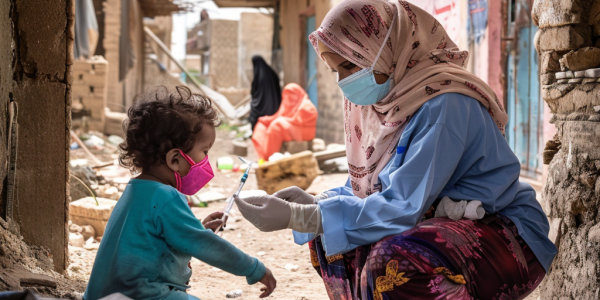Promising Results for New Malaria Vaccine Candidate RH5.1/Matrix-M
A promising new malaria vaccine candidate, RH5.1/Matrix-M, has shown an impressive 55% efficacy in trials, targeting the parasite during its blood-stage. This significant advancement in malaria prevention could transform health strategies in sub-Saharan Africa, addressing the disease’s severe impact on vulnerable populations.
New mpox Virus Clade Detected in Africa Amid Rising Cases and Urgent Health Concerns
Recent genetic sequencing reveals the novel clade 1b mpox virus spreading in Zambia and Zimbabwe, with Africa witnessing an alarming average of 2,800 new cases weekly. The Democratic Republic of the Congo remains the outbreak’s epicenter, while Uganda sees a rise in cases among sex workers. Urgent vaccination efforts are underway, yet children, who represent 36% of cases, face a critical gap in vaccination options. The Africa CDC emphasizes the need for robust public health measures to combat this escalating health crisis.
Severe Malaria Outbreak in Ethiopia: Over 7.3 Million Cases Reported
Ethiopia is facing a severe malaria outbreak, with over 7.3 million cases and 1,157 deaths reported in 2024. The situation is dire, particularly for children under five, and exacerbated by healthcare delivery challenges in conflict-affected regions. The World Health Organization has assessed the national risk as high, highlighting the urgent need for targeted interventions and community engagement to combat this public health crisis.
Egypt Declares Malaria Eradicated After Millennia of Struggle
Egypt has officially eradicated malaria, a disease that has plagued the nation for millennia. This achievement highlights the effectiveness of public health initiatives, including the distribution of insecticide-treated bed nets and community education. The elimination of malaria is expected to boost Egypt’s economy and improve quality of life, serving as an inspiration for other countries facing similar health challenges. Continued vigilance and investment in public health are essential to prevent any resurgence of this mosquito-borne illness.
Monkeypox Cases Surge Over 500% in Africa, Raising Public Health Alarm
Monkeypox cases in Africa have surged by over 500% in 2024, with 48,093 reported cases and 10,372 confirmed instances. The outbreak, affecting 19 countries, has prompted the Africa CDC to declare a public health emergency. Key regions like Central Africa are severely impacted, highlighting the urgent need for enhanced public health measures to combat this viral disease.
WHO Reports Alarming Rise in Tuberculosis Cases, Calls for Urgent Action
The World Health Organization (WHO) reports a staggering increase in tuberculosis (TB) cases, with 8.2 million new diagnoses in 2023, marking the highest level since 1995. As TB reclaims its position as the leading infectious disease killer, urgent actions are needed to address funding gaps and enhance treatment efforts, especially in high-burden countries like India and Indonesia. The WHO calls for global commitment to combat this public health crisis effectively.
GPEI Extends Polio Eradication Timeline to 2029 Amid Global Conflicts
The Global Polio Eradication Initiative (GPEI) has postponed its target for eradicating polio to 2029 due to ongoing conflicts affecting vaccination efforts in regions like Gaza, Sudan, and Yemen. With a resurgence of poliovirus in previously eradicated areas, the GPEI is calling for increased financial support to address a $2.4 billion shortfall in its budget. The organization emphasizes the need for collaboration and innovative strategies to overcome logistical challenges and ensure that every child receives life-saving vaccines.
GPMB Report Highlights Urgent Pandemic Threats and Need for Global Preparedness
The Global Preparedness Monitoring Board’s annual report highlights critical pandemic threats, including avian influenza H5N1 and emerging mpox strains in Africa. It emphasizes the need for a proactive One Health approach, rebuilding trust in public health, and preparing for diverse health crises. With recent mpox cases reported in Zimbabwe, the report serves as a call for global cooperation and vigilance against future pandemics.
WHO Approves First Diagnostic Test for Mpox Amid Rising Cases in Africa
The World Health Organization (WHO) has approved the first diagnostic test for mpox, formerly known as monkeypox, marking a significant advancement in combating the virus. With over 30,000 cases reported in Africa, this test is set to enhance detection capabilities, especially in outbreak regions. Developed by Abbott Molecular, the Alinity m MPXV assay provides results in under 115 minutes, crucial for timely public health responses. As countries like Ghana report new cases, the WHO’s proactive measures aim to control the spread of mpox effectively.
Alarming Study Reveals Low Physical Activity Levels in Young Children
A new study reveals alarming trends in children’s health, showing only 14% of children aged three to four meet WHO guidelines for physical activity, sleep, and screen time. Conducted by researchers from the University of Wollongong and the University of Stirling, the study analyzed data from over 7,000 children across 33 countries. It highlights the urgent need for parents, educators, and policymakers to promote healthier lifestyles and address disparities in children’s activity levels globally.

